Rob Bignell's Blog, page 364
July 31, 2013
Get it right, all right vs. alright
During my 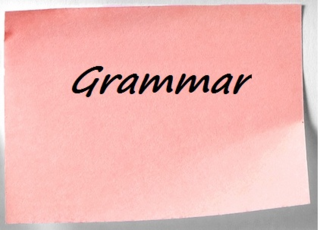 edits of novels, nonfiction books, academic papers and business documents, I frequently see the same pairs of words confused. Among them is all right and alright.
edits of novels, nonfiction books, academic papers and business documents, I frequently see the same pairs of words confused. Among them is all right and alright.
While alright increasingly appears in writing, most grammarians would agree that alright is all wrong. Alright generally is considered nonstandard, and its use probably arises from the notion that all right/alright follows similar rules to “all ready/already” or “all together/altogether.”
The American Heritage Guide to Contemporary Usage and Style (7), does list alright as okay to use when it means “satisfactory,” indicating that all right means “accurate.” Hmm … Sure, satisfactory and accurate have different definitions, but what’s the difference between if you write, “The cost estimates are satisfactory” or the “The cost estimates are accurate”? To be alright (satisfactory), the cost estimates would have to be all right (accurate). Or why not just write “The cost estimates are satisfactory” rather than “The cost estimates are alright” if you want to indicate they are not excellent … “satisfactory” certainly would be more specific (or accurate!).
Or would saying they’re satisfactory be alright?
Final verdict: Always use all right, never use alright.
Need an editor? Having your book, business document or academic paper proofread or edited before submitting it can prove invaluable. In an economic climate where you face heavy competition, your writing needs a second eye to give you the edge. I can provide that second eye.
Related articles
 Getting to the core: Amid vs. amidst
Getting to the core: Amid vs. amidst Editing client releases quest novel sequel
Editing client releases quest novel sequel Editing client releases first novel, 'Dog Island'
Editing client releases first novel, 'Dog Island' Get it entirely right: All together vs. altogether
Get it entirely right: All together vs. altogether Delete redundancies for tighter manuscript
Delete redundancies for tighter manuscript
July 30, 2013
Tighten writing by cutting begin fallacy
To keep 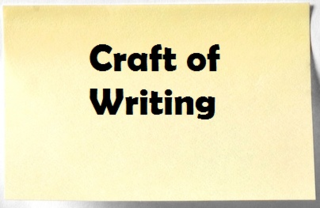 up a story’s pace – and hence the reader’s interest – you’ll want to write as tightly as possible. Metaphorically, you’ll squeeze all you can from your words so that a sentence is as compact as possible with no extra, unnecessary words spilling out.
up a story’s pace – and hence the reader’s interest – you’ll want to write as tightly as possible. Metaphorically, you’ll squeeze all you can from your words so that a sentence is as compact as possible with no extra, unnecessary words spilling out.
One way to achieve that is to eliminate the begin fallacy. This occurs when the writer introduces an action to the reader by saying “began to”, as in “My nerves began to calm.”
The writer can cut “began to”, however, and tighten the wording by saying, “My nerves calmed”. Notice how it’s not only a shorter sentence but a stronger one because “calmed” is the main verb rather than “began”.
Need an editor? Having your book, business document or academic paper proofread or edited before submitting it can prove invaluable. In an economic climate where you face heavy competition, your writing needs a second eye to give you the edge. I can provide that second eye.
Related articles
 When to use affect vs. effect
When to use affect vs. effect What if I edit out too much exposition?
What if I edit out too much exposition? Five great quotations about writing style
Five great quotations about writing style 'Show, don't tell' when writing fiction
'Show, don't tell' when writing fiction Strengthen writing by replacing adverbs
Strengthen writing by replacing adverbs
July 29, 2013
Make story interesting by establishing stakes
The plot 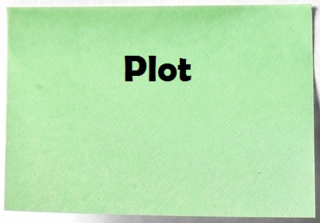 of a story is more interesting and exciting if the characters have something to gain or lose.
of a story is more interesting and exciting if the characters have something to gain or lose.
Because of this, the characters in your story should something at stake, or some personal interest or involvement in solving the story’s conflict. Establishing what these personal interests or involvement are early in the story and then returning them through the rising action generates reader interest.
The “stakes” always revolve around two basic questions: “What does the protagonist want?” and “What if the protagonist fails to get it?” For example, in Isaac Asimov’s “Foundation,” the character Salvor Hardin wants to ensure his home planet of Terminus (one of two depositories of scientific knowledge and reason in which humanity’s future depends) survives the collapse of the Galactic Empire, which is fragmenting into several war-like kingdoms. If he fails, Terminus will be taken over by the warrior kingdoms – and humanity will fall into a dark ages that lasts thousands of years. Those are high stakes.
Remember that virtually all stories center on a character that possesses some want that if unfulfilled means some disaster. The plot of the story is little more than the obstacles that the character must overcome as trying to fulfill this want.
Need an editor? Having your book, business document or academic paper proofread or edited before submitting it can prove invaluable. In an economic climate where you face heavy competition, your writing needs a second eye to give you the edge. I can provide that second eye.
Related articles
 Draw readers into story with great opening lines
Draw readers into story with great opening lines Avoid 'As you know' Syndrome in fiction
Avoid 'As you know' Syndrome in fiction
July 28, 2013
Duluth bookstore hosting editor reading/signing
The Bookstore at Fitger’s in Duluth,  Minn., is hosting a book reading/signing for my recent book, Headin’ to the Cabin: Day Hiking Trails of Northwest Wisconsin, on Saturday, Aug. 3 from noon to 2 p.m. An independent bookstore, Fitger’s specializes in Northeastern Minnesota regional books and also carry new releases, bestsellers and nonfiction, as well as children’s books and toys. Headin’ to the Cabin describes more than a 100 day hiking trails in Ashland, Barron, Bayfield, Burnett, Douglas, Polk, St. Croix, Sawyer and Washburn counties, including several in neighboring Superior. The Bookstore at Fitger’s is located at 600 East Superior St. – just off the Superior Hiking Trail!
Minn., is hosting a book reading/signing for my recent book, Headin’ to the Cabin: Day Hiking Trails of Northwest Wisconsin, on Saturday, Aug. 3 from noon to 2 p.m. An independent bookstore, Fitger’s specializes in Northeastern Minnesota regional books and also carry new releases, bestsellers and nonfiction, as well as children’s books and toys. Headin’ to the Cabin describes more than a 100 day hiking trails in Ashland, Barron, Bayfield, Burnett, Douglas, Polk, St. Croix, Sawyer and Washburn counties, including several in neighboring Superior. The Bookstore at Fitger’s is located at 600 East Superior St. – just off the Superior Hiking Trail!
Need an editor? Having your book, business document or academic paper proofread or edited before submitting it can prove invaluable. In an economic climate where you face heavy competition, your writing needs a second eye to give you the edge. I can provide that second eye.
Related articles
 Wisconsin Outdoors Fun features editor's book
Wisconsin Outdoors Fun features editor's book Metro paper features editor's hiking book
Metro paper features editor's hiking book 'Headin' to the Cabin' makes Father's Day gift list
'Headin' to the Cabin' makes Father's Day gift list
July 27, 2013
Siren-Webster, WI gallery hosting editor reading
In a New Light Gallery in  Siren-Webster, Wis., is hosting a book reading/signing for my recent book, Headin’ to the Cabin: Day Hiking Trails of Northwest Wisconsin, on Friday, Aug. 2 from 4 to 6 p.m. The gallery is operated by Northwest Passage, which provides innovative mental health services for children and families and displays works aimed at destigmatizing mental health. The nature photography on display showcases nature’s potential to provide transformative healing experiences for youth. Headin’ to the Cabin describes more than a 100 day hiking trails in Ashland, Barron, Bayfield, Burnett, Douglas, Polk, St. Croix, Sawyer and Washburn counties, including several in the Siren area. In a New Light Gallery is located at 7417 N. Bass Lake Road – just off of Wis. Hwy. 35 and the famous Gandy Dancer Trail! By the way, the Siren Summerfest is that weekend, so you’re sure to have a good time!
Siren-Webster, Wis., is hosting a book reading/signing for my recent book, Headin’ to the Cabin: Day Hiking Trails of Northwest Wisconsin, on Friday, Aug. 2 from 4 to 6 p.m. The gallery is operated by Northwest Passage, which provides innovative mental health services for children and families and displays works aimed at destigmatizing mental health. The nature photography on display showcases nature’s potential to provide transformative healing experiences for youth. Headin’ to the Cabin describes more than a 100 day hiking trails in Ashland, Barron, Bayfield, Burnett, Douglas, Polk, St. Croix, Sawyer and Washburn counties, including several in the Siren area. In a New Light Gallery is located at 7417 N. Bass Lake Road – just off of Wis. Hwy. 35 and the famous Gandy Dancer Trail! By the way, the Siren Summerfest is that weekend, so you’re sure to have a good time!
Need an editor? Having your book, business document or academic paper proofread or edited before submitting it can prove invaluable. In an economic climate where you face heavy competition, your writing needs a second eye to give you the edge. I can provide that second eye.
Related articles
 'Headin' to the Cabin' makes Father's Day gift list
'Headin' to the Cabin' makes Father's Day gift list Polk Cty. Info Cntr. carries 'Headin' to the Cabin'
Polk Cty. Info Cntr. carries 'Headin' to the Cabin'
July 26, 2013
How to write an author’s bio
Another page you’ll want on a website promoting your book is an “About the Author.” Readers love to learn more about the author of a book they’re reading. If writing a nonfiction book, the author’s bio helps establish you as a qualified expert to write about your book’s topic, encouraging potential readers to purchase your writing. Finally, it gives the media information to add to any articles or blog entries about you.
you’ll want on a website promoting your book is an “About the Author.” Readers love to learn more about the author of a book they’re reading. If writing a nonfiction book, the author’s bio helps establish you as a qualified expert to write about your book’s topic, encouraging potential readers to purchase your writing. Finally, it gives the media information to add to any articles or blog entries about you.
Write the bio in third person, as if someone else were telling about you. This will sound more professional on your website.
There are no hard and fast rules about exactly how the bio will read. There are some aspects about your life that you may want to get into the bio, however:
g What do you do for a living?
g Have you won any awards (writing or otherwise)?
g Is this your first published book? If not, what are the titles of the other books you've published?
g Has your writing appeared elsewhere (magazines, newspapers, blogs, etc)?
g What makes you qualified to write the book (this is particularly important for authors of nonfiction books, not so relevant to novelists)?
g Where did you graduate from school, what is your highest degree, and what was it in?
g Where do you reside?
g Is there a blog or website about you or the book readers can be sent to? What is its name and URL?
Using answers to the above questions, here are a couple of author's bios that can be models of how to write one (The first is for my nonfiction book Hikes with Tykes; the second is for the author of a novel):
Rob Bignell is a long-time journalist, editor and hiker. He and his son Kieran have been hiking together for the past four years. Before Kieran, Rob served as an infantryman in the Army National Guard and taught middle school students in New Mexico and Wisconsin. His newspaper writing has won several journalism awards, from editorial to sports reporting. In 2001, The Prescott Journal, which he served as managing editor of, was named Wisconsin’s Weekly Newspaper of the Year. Currently he is CEO and owner of Inventing Reality Editing Service. He lives with his son in Southern California.
Bro Craig grew up in Coos River, Oregon, a third-generation Oregonian. As a child, he learned the value of friendship, honor and hard work. After graduating from Marshfield High School, he spent a year at Willamette University then transferred to the University of Oregon, earning a bachelor’s in marketing. During the next 35 years, he worked in the agriculture, aquaculture, forest products, and electronics industries. He obtained his commodity trading license, securities license, and Manager’s Food Handlers permit, while starting, buying and selling businesses. He always had been encouraged to write about his adventures and experiences in life, and upon finally sitting down to pen them found his passion. Thus, "The Letters." This is his first of many novels to come in which he mixes fiction with nonfiction, leaving the reader questioning.
The author’s bio that you write for your website also can serve as the biography that appears on your book’s back cover or at the end of the book.
Finally, include a photo of yourself on this page. Readers not only like to learn about an author’s background, they like to see what they look like. Usually a head shot is fine, but make sure it doesn’t look like an amateurish snapshot or one of those police mug shots.
Need an editor? Having your book, business document or academic paper proofread or edited before submitting it can prove invaluable. In an economic climate where you face heavy competition, your writing needs a second eye to give you the edge. I can provide that second eye.
Related articles
 Common 'first draft-itis' symptoms to look for
Common 'first draft-itis' symptoms to look for Hiking books now on sale in Stillwater, Minn.
Hiking books now on sale in Stillwater, Minn.
July 25, 2013
What to name your publishing company
Should you decide to create your own publishing company, you’ll need to come up with a name for it.
decide to create your own publishing company, you’ll need to come up with a name for it.
You really can name the company almost anything you want. Still, there are some general guidelines you should consider following:
g Leave your personal name out of it – Since one of the reasons you’ve decided to create a company is to avoid the appearance of being self-published, you almost certainly don’t want to name it after yourself. That’s a good tipoff that you’re self-publishing!
g Make it unique – You don’t want a name that sounds too similar to another publishing company’s name, even if it’s out of business. You’ll only create confusion and run the risk of being sued. After you’ve come up with a few potential names for your company, run your name through a search engine and see what pops up.
g Ensure it’s easy to remember – You want the name to be unique but not difficult to recall or spell. If your writing franchise really takes off, some people (and buyers interested in making an offer) will search for you online.
The most common names I’ve seen for publishing companies that self-publishing writers have created tend to be geographical based on where the author lives (Gold Valley Publishing Co.), named in honor of someone important to the author (Auntie Jane Publishing), or some word that is personally important or symbolic for the author (Dream Achieved Publishing, Inc.).
Finally, after you’ve named your publishing company, quickly get a web domain name for it. For example, Gold Valley Publishing Co.’s domain name might be https://www.goldvalleypublishing.com. This does come with an expense (but setting up your own publishing company was never sold as inexpensive). Check a domain registry site to see if your name is available (in fact, this may influence what name you ultimately select).
Need an editor? Having your book, business document or academic paper proofread or edited before submitting it can prove invaluable. In an economic climate where you face heavy competition, your writing needs a second eye to give you the edge. I can provide that second eye.
Related articles
 How to purchase an ISBN for your book
How to purchase an ISBN for your book Select array of distribution channels to sell book
Select array of distribution channels to sell book '7 Minutes a Day' now available in paperback!
'7 Minutes a Day' now available in paperback! Devise plan to market your self-published book
Devise plan to market your self-published book
July 24, 2013
Getting focused on close up vs. close-up
Often when editing manuscripts, I find writers have mixed up “close up” and “close-up.” Let’s quick take a magnifying glass to these two words and examine when each should be used.
If you want to say that the space or distance between two objects or places has decreased, you’re looking for “close up.” In this case, the word is a verb, as in “Our faster rockets will close up the time needed to travel from the Earth to Mars.”
If you want to say that something is at close range, you’re looking for “close-up.” Such a word is a noun, adjective or an adverb in your sentence. To wit, “The movie director called for a close-up of the star’s face” (noun) or “Let’s get a close-up view of those ants with that magnifying glass” (adjective).
Need an editor? Having your book, business document or academic paper proofread or edited before submitting it can prove invaluable. In an economic climate where you face heavy competition, your writing needs a second eye to give you the edge. I can provide that second eye.
Related articles
 Get it entirely right: All together vs. altogether
Get it entirely right: All together vs. altogether Delete redundancies for tighter manuscript
Delete redundancies for tighter manuscript Common 'first draft-itis' symptoms to look for
Common 'first draft-itis' symptoms to look for
July 23, 2013
State park's gift store carrying editor's book
, 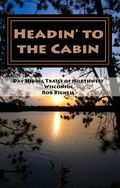 the
the
gift store at Wisconsin Interstate State Park's visitor center, is now carrying my book, Headin' to the Cabin: Day Hiking Trails of Northwest Wisconsin. Headin’ to the Cabin describes more than a 100 day hiking trails in Ashland, Barron, Bayfield, Burnett, Douglas, Polk, St. Croix, Sawyer and Washburn counties, including several in Interstate State Park. The park is located off of Wis. Hwy. 35 south of U.S. Hwy. 8 in St. Croix Falls.
Need an editor? Having your book, business document or academic paper proofread or edited before submitting it can prove invaluable. In an economic climate where you face heavy competition, your writing needs a second eye to give you the edge. I can provide that second eye.
Related articles
 St. Croix 360 features 'Hittin' the Trail' excerpt
St. Croix 360 features 'Hittin' the Trail' excerpt Fourth book in 'Hittin' the Trail' series released
Fourth book in 'Hittin' the Trail' series released Rice Lake, Wis., library hosting editor reading/signing of 'Headin' to the Cabin'
Rice Lake, Wis., library hosting editor reading/signing of 'Headin' to the Cabin' Polk Cty. Info Cntr. carries 'Headin' to the Cabin'
Polk Cty. Info Cntr. carries 'Headin' to the Cabin' Idlewild Outfitters hosts editor's meet-the-author
Idlewild Outfitters hosts editor's meet-the-author
July 22, 2013
Add ticking clock to create sense of urgency
Many science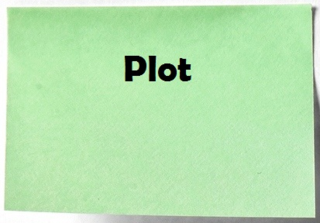 fiction and action-adventure tales give their main character a finite amount of time to solve a problem. The ever-accelerating starship has only so many minutes before its structural integrity will fail. The terrorists’ nuclear bomb will explode in so many hours. Only a few days remain before the asteroid strikes the Earth. These time limits are called “ticking clocks.”
fiction and action-adventure tales give their main character a finite amount of time to solve a problem. The ever-accelerating starship has only so many minutes before its structural integrity will fail. The terrorists’ nuclear bomb will explode in so many hours. Only a few days remain before the asteroid strikes the Earth. These time limits are called “ticking clocks.”
To some degree, all stories employ a ticking clock as part of their plot. If they didn’t, the tale would careen aimlessly. Because the story must end, it must reach a breaking point, or climax, where the problem either is or isn’t solved. That climax is when the ticking clock strikes twelve.
To increase dramatic tension, the main character should recognize throughout the rising action that time is running out for him. His sense of urgency should increase as the time available to him diminishes.
Need an editor? Having your book, business document or academic paper proofread or edited before submitting it can prove invaluable. In an economic climate where you face heavy competition, your writing needs a second eye to give you the edge. I can provide that second eye.
Related articles
 Draw readers into story with great opening lines
Draw readers into story with great opening lines Create a riveting opener for your story
Create a riveting opener for your story Unfold action to develop a stronger story
Unfold action to develop a stronger story Avoid 'As you know' Syndrome in fiction
Avoid 'As you know' Syndrome in fiction



